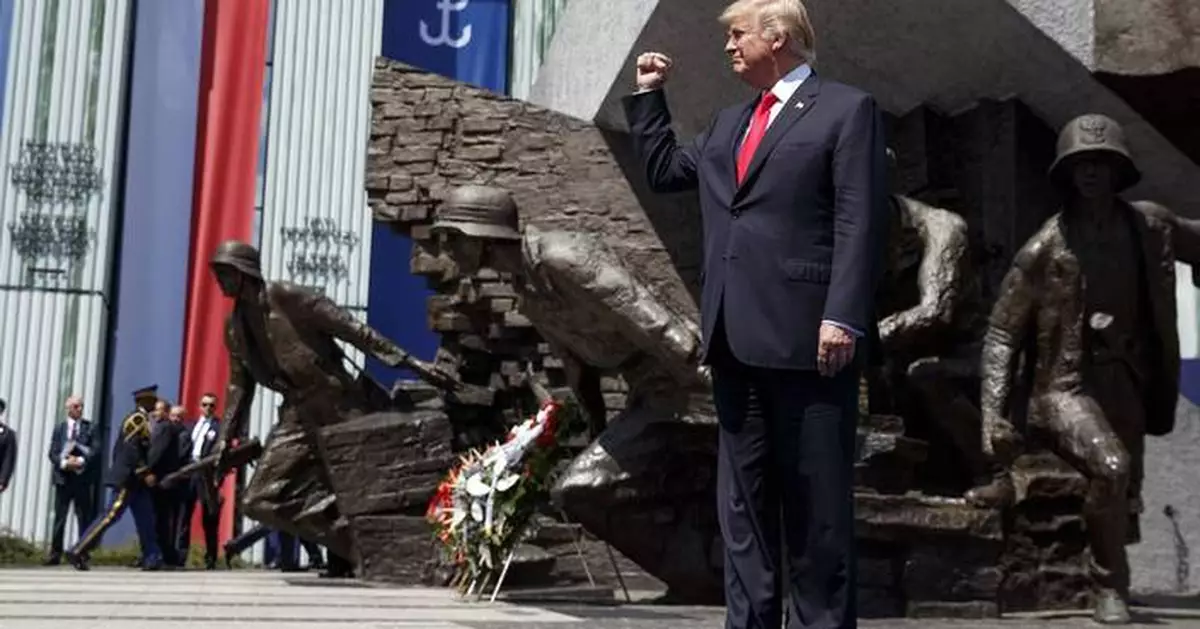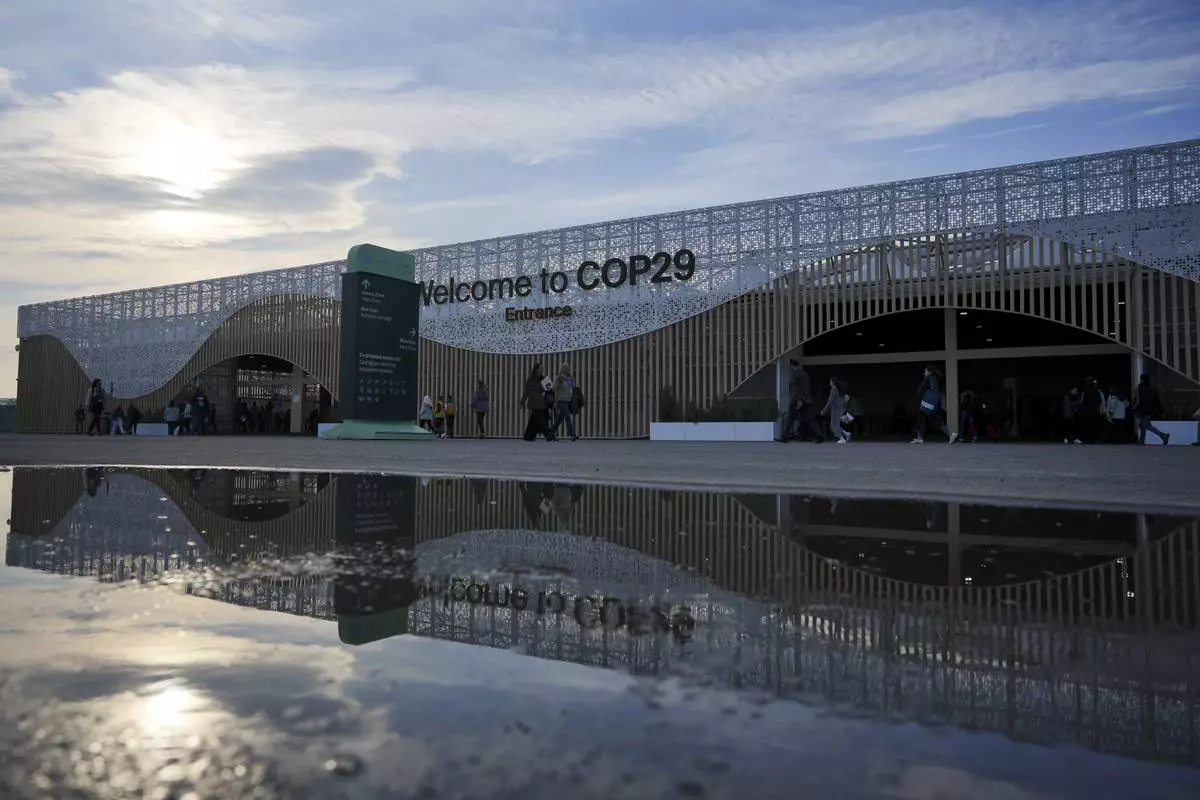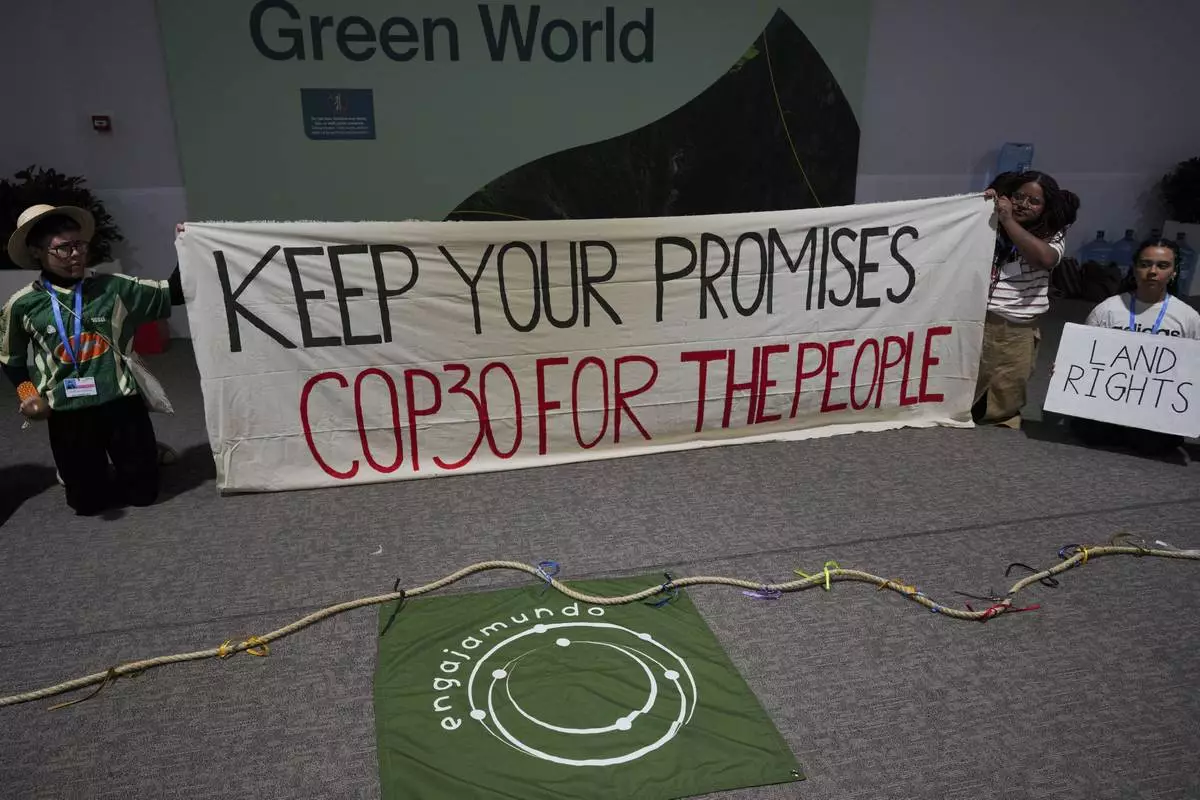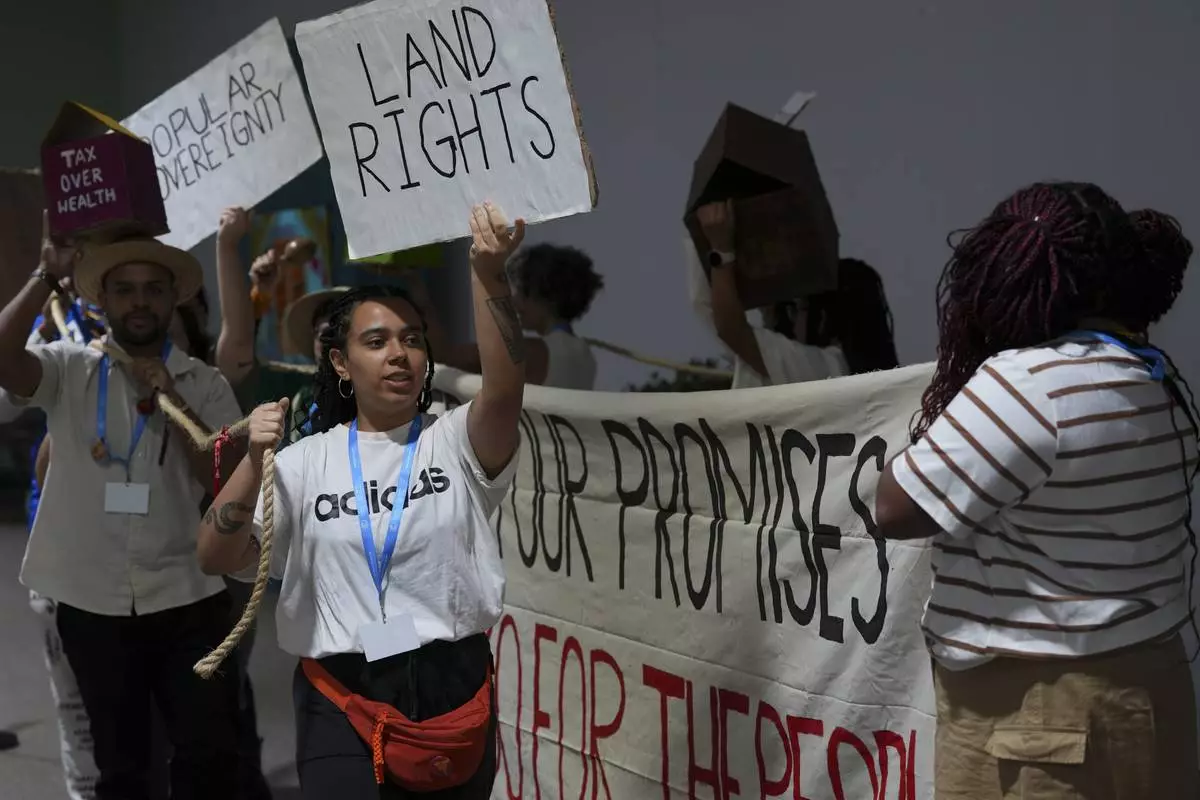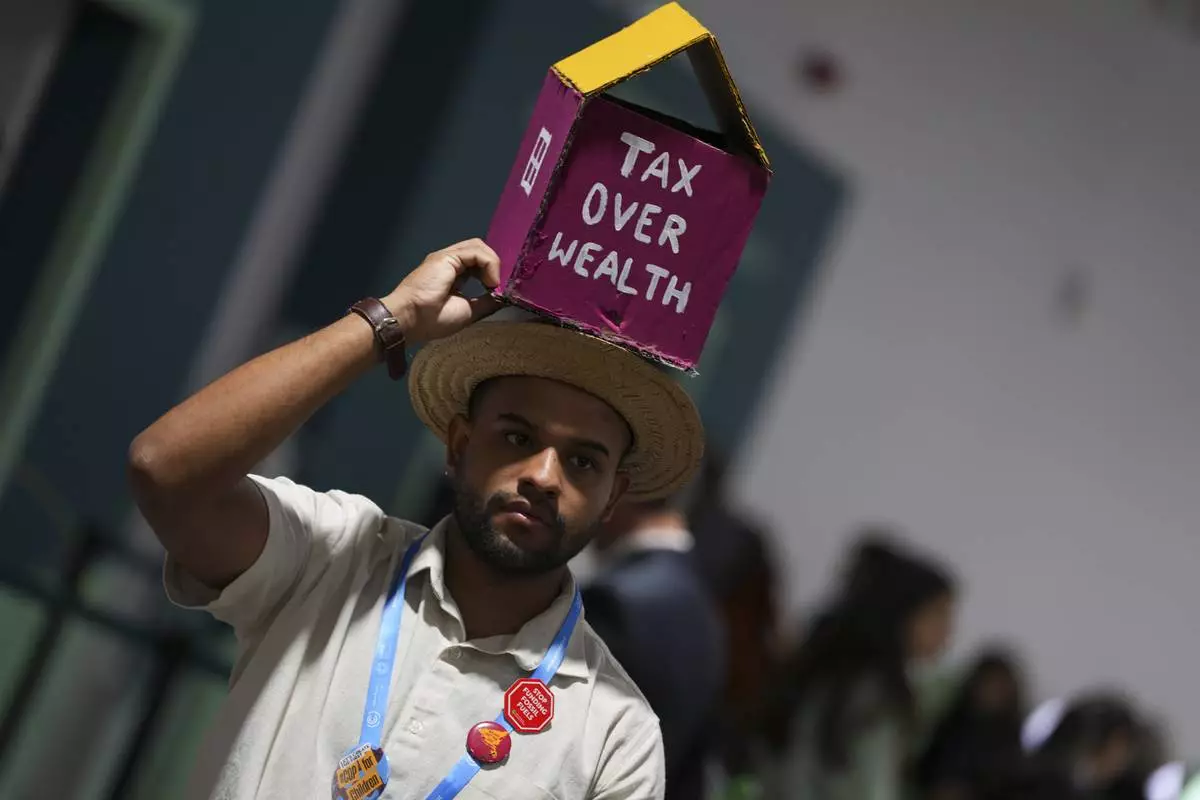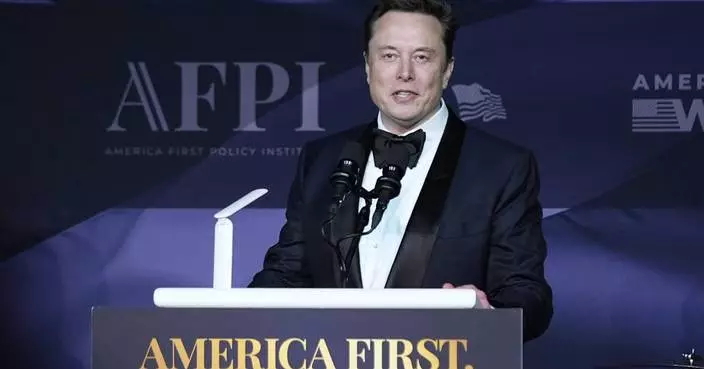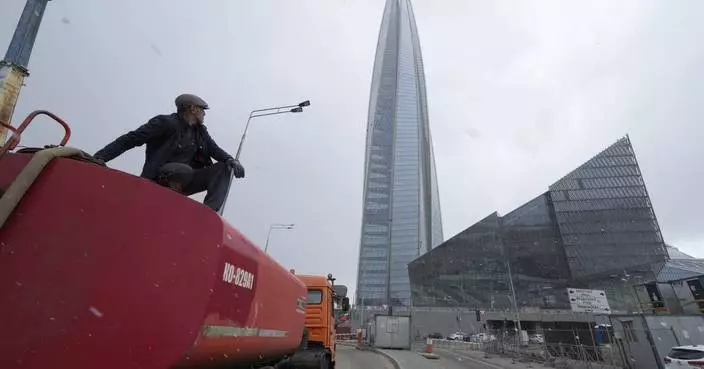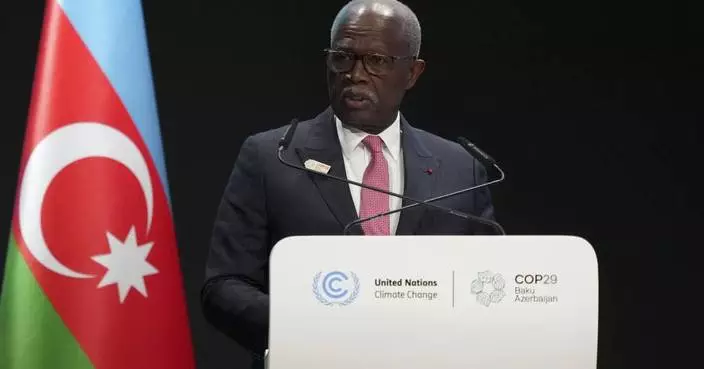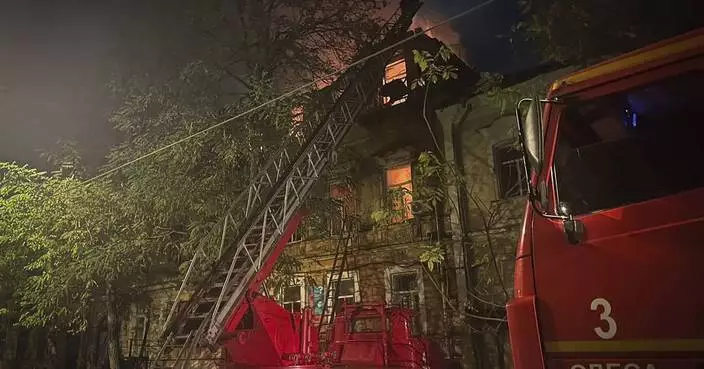WARSAW, Poland (AP) — Conservative lawmakers in the Polish parliament exulted at Donald Trump's victory, standing and applauding while they chanted his name.
The prospect of a second Trump term has excited people on the populist right across Central Europe who share his anti-immigrant views and contempt for international organizations.
But many others in a region near the war in Ukraine are afraid. They worry Trump could abandon Ukraine and force Kyiv into a deal that ends up emboldening Russia further, or unwind the U.S. military presence in Europe.
The change in Washington means Europe will have to invest more in its security and defense rather than relying on the American protective shield as it has done for decades, argues Michał Baranowski, managing director of Warsaw-based GMF East, part of the German Marshall Fund think tank.
"We Europeans — Poles and French and Brits and preferably Germany as well — need to step up," Baranowski said. "Only by stepping up do we have a chance to keep the worst case scenarios from happening, both a bad deal in Ukraine and perhaps a lowering of U.S. engagement in Europe.”
Poland, the Baltic states and other nations across Central and Eastern Europe were under Moscow's control during the Cold War. When that era ended in 1989, it freed them to turn to the West. They never want to return to being satellites of Moscow.
NATO members now, they worry that Trump in his second term could end a decades-long commitment to securing the peace in Europe. Just this week, a missile defense base in northern Poland was inaugurated — the fruit of years of planning by Republican and Democratic administrations. Polish officials expressed hopes that it was a sign that a bipartisan U.S. commitment to the region would endure.
“The whole world will see clearly that this is not Russia’s sphere of interest anymore,” Polish President Andrzej Duda declared.
Trump has a long history of denigrating NATO, and former administration officials say he repeatedly threatened to withdraw the U.S. from the alliance.
His allies have described that as bluster or tough negotiating tactics that have pushed other European allies to take more responsibility, and argue that Trump didn't abandon NATO.
The change in Washington has in just a few days changed the dynamic of Poland’s presidential campaign before an election next spring. Foreign Minister Radek Sikorski, a former defense minister with ties in Washington, entered the running to be the candidate for centrist Prime Minister Donald Tusk’s party, challenging the longtime favorite, Warsaw Mayor Rafał Trzaskowski.
Sikorski argues that his experience makes him the better choice for the times. His opponents argue that the anti-Trump views of his wife, the American writer Anne Applebaum, could create complications with Trump’s upcoming administration.
The region is now holding its collective breath to see what a second Trump presidency will bring.
Officials in Poland and the Baltic states have been stressing their high defense spending — relative to their overall economic output — in their congratulatory messages to Trump.
Kersti Kaljulaid, who was Estonia's president during Trump's first term, told the Estonian public broadcaster ERR that Estonians, Poles and others in Eastern Europe found ways to reach Trump before, “and I think that this skill is something that we still have today."
All are now watching to see if Trump will make a deal with Russia to end the war in Ukraine, as he has promised. It is a cause of existential importance, because any deal is expected to shape security in the region in profound ways in the years and decades to come.
The biggest fear would be a deal that gives Russia significant Ukrainian territory, rewarding President Vladimir Putin's violation of international law and allowing Moscow to rebuild its military strength.
Poland's Tusk has stressed that no deal should be made over the heads of Ukraine and countries in the region that will be affected.
“There is no doubt that the new political landscape is a serious challenge for everyone,” Tusk said last week.
Tusk congratulated Trump last week and is striking a conciliatory tone after having been critical in the past of a position seen by most Poles as overly friendly to Putin.
Duda, a conservative who has long admired Trump, said Wednesday that he doesn't believe that Trump would abandon Ukraine after U.S. taxpayers have already invested huge amounts in Ukraine's defense.
Trump is a “winner,” Duda said. “I cannot imagine that he would allow Russia to destroy Ukraine.”
Trump's win energized Poles at an Independence Day march on Monday organized by nationalist groups that drew tens of thousands of participants. Some there believed Trump's friendly stance toward Russia could help end the war in Ukraine.
“If he’s pro-Russian and that means peace in the world, I think it’s OK," said Adrian Golik, a 23-year-old university student who joined the march with his brother and parents. All have dual Polish-U.S. citizenship and cast their votes for Trump in Illinois.
The leaders of Hungary and Slovakia — both seen as friendly to Trump and Putin — believe Ukraine has already lost the fight and shouldn't keep getting Western military aid.
Slovak Prime Minister Robert Fico, who although a leftist is known for his pro-Russian and anti-American views, welcomed Trump’s victory as “a defeat of liberal and progressivist ideas.”
Hungarian Prime Minister Viktor Orbán has called Trump “the man of peace,” and last week predicted that the incoming administration would cease U.S. support for Ukraine as it fights Russia’s full-scale invasion.
“One of the key messages of this election is that Europe needs to grow up geopolitically and do it quickly, and that the era of security outsourcing is over," said Baranowski, the analyst. “The stakes are very high — Europe can have influence if we pull it together and if we step up.”
Justin Spike in Budapest, Hungary, Jari Tanner in Helsinki, Finland, and Karel Janicek in Prague contributed to this report.
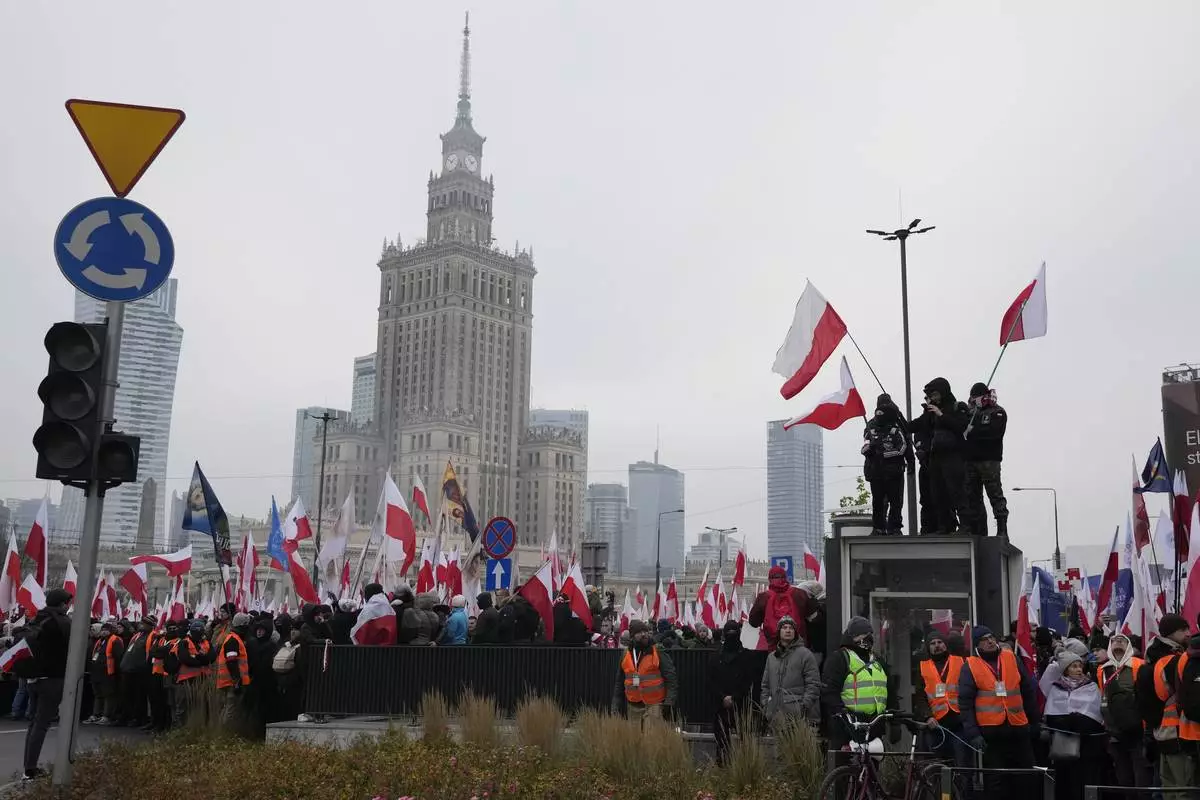
People take part in Independence Day march organised by far-right groups in Warsaw, Poland, Monday, Nov. 11, 2024. (AP Photo/Czarek Sokolowski)
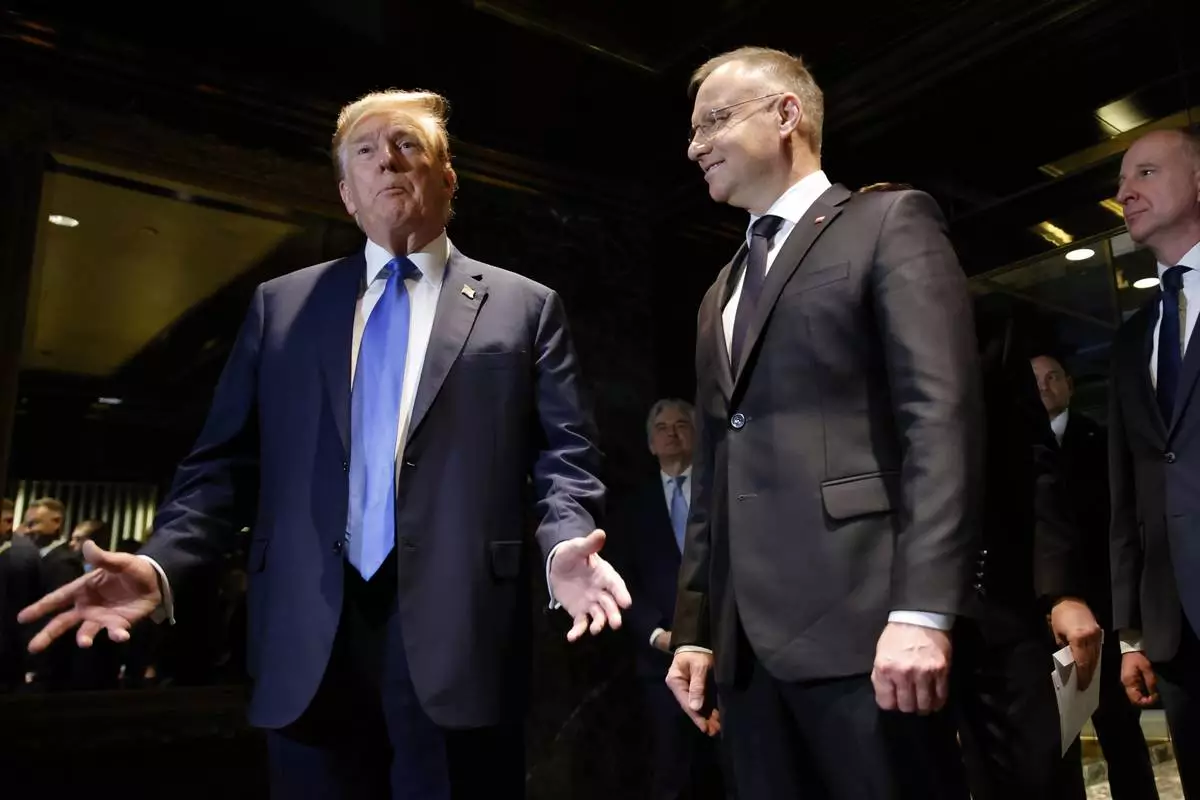
FILE - Republican presidential candidate former US President Donald Trump speaks as he meets with Poland's President Andrzej Duda, right, at Trump Tower in New York, April 17, 2024. (AP Photo/Stefan Jeremiah, File)
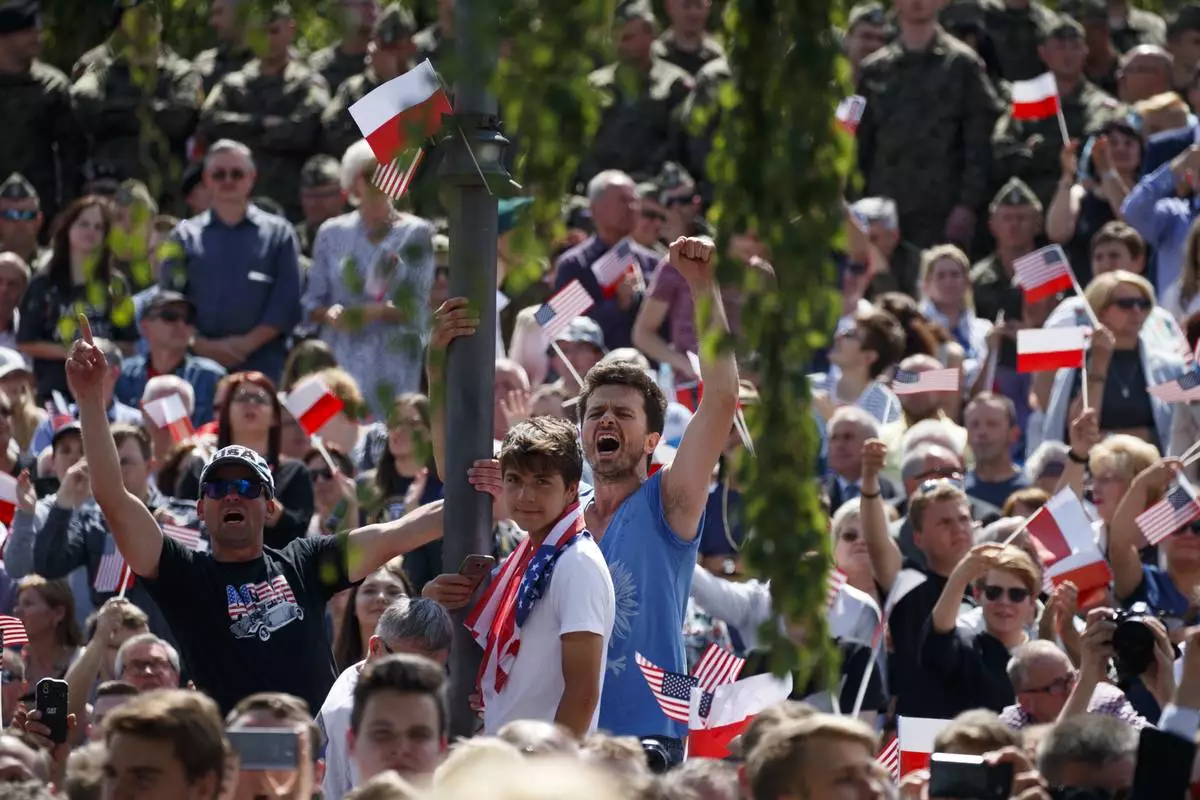
FILE - People cheer as US President Donald Trump delivers a speech at Krasinski Square at the Royal Castle, July 6, 2017, in Warsaw. (AP Photo/Evan Vucci, File)
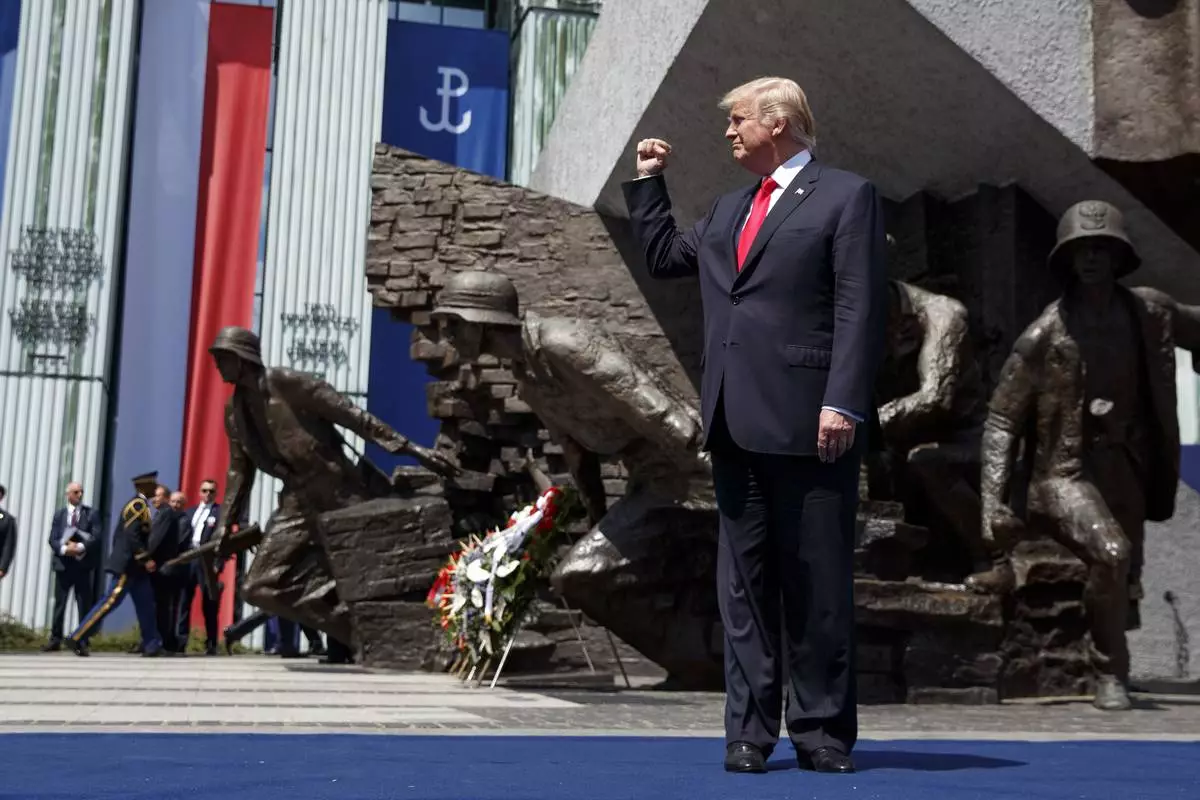
FILE - US President Donald Trump arrives to deliver a speech at Krasinski Square at the Royal Castle, July 6, 2017, in Warsaw. (AP Photo/Evan Vucci, File)


